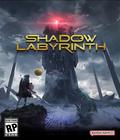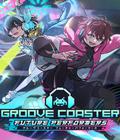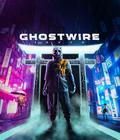Buy Ghostwire: Tokyo
Ghostwire: Tokyo is Tango Gameworks' answer to the question, "Who you gonna call?" Instead of a darkly twisted offering of mind-bending creepiness, the Japanese studio founded by the godfather of survival horror jumps feet-first into ghostbusting action while taking players on a magical mystery tour of Japanese spiritual myths and legends. For the most part, it hits — but I'm also left with the feeling that, like many of the characters you'll find here, some aspects were stuck between worlds.
This game, in some ways, defies some of Tango's history. Shinji Mikami, one of Tango's founders, helped establish and build the creative tone and feel for what we now know as "survival horror," in which unsuspecting heroes walk into a terrifying and disturbing cocktail of sci-fi or occult-ish paranoia and straight-up monster gore. This took form in the early Resident Evil games. As the series turned more into an action brand in the hands of others, Mikami and Tango brought forth The Evil Within series, which explored the mind and treated it as an ethereal playground, while also attempting to recalibrate players' sense of fear and terror in the games they play.
There's no overwhelming sense of fear in Ghostwire: Tokyo. It is an action-packed toe-dip into the world of the paranormal, emanating a combined vibe of "Constantine" and "Ghostbusters." It does not ask if you are a god, however, but you as the hero have no choice but to say yes to the task at hand.
You're in the resurrected body of Akito, a 22-year-old student who becomes empowered with magical abilities when the spirit of KK, an expert ghost-hunter (for lack of a better term) dives into what would have been Akito's corpse and gets the party started. The "something strange" in the neighborhood of Tokyo comes in the form of a fog that turns everyone in the streets into body-free spirits, floating and being harvested by strange creatures called the Visitors.
The Visitors all take various forms; many of them are faceless, suit-wearing beings with umbrellas, and others are headless schoolgirls who like to kick and laugh because of course they do. There's some initial friction between KK and Akito because Akito was literally dead a few minutes ago, and now he's alive, only to be ordered around by this random spirit guy who wants to take over his body to fight evil. A lot of that ends quickly once the core villain appears: a highly powered man wearing a Hannya demon mask who almost kills Akito again and kidnaps his sister Mari for some kind of inferred greater purpose. With KK serving mostly as Akito's voice-in-the-head spiritual advisor, they set off to find answers.
I found much of the game to be visually sharp and stunning — when it wasn't covered in toxic fog. The metro setting of the Shibuya district of Tokyo bounces with the kind of frantic, neon energy one would only feel in a bustling downtown, and it could serve, in some ways, as a virtual tour of that part of the city. Heading into massive high-rise shopping centers or down into subterranean transit centers has a sort of dark appeal, which is appropriate given the circumstances. However, I also found Ghostwire's sense of eerie desolation could work against it; it lacks the vibrancy of Yakuza's Kamurocho, for example, which led to some visual monotony despite how well-crafted everything looked. Movement at the prime graphical settings could also feel flat and blurry on occasion, to the point of being somewhat distracting, especially for an action game. Over the course of many hours, I also found the character design, while good, to not be diverse enough to prevent me from feeling like the occasional fight was a chore. To counter that, the work with Akito's hand gestures while performing magic offered some color as well as a sense of martial artistry — pointing, twirling, the occasional flourish, the use of his soul-snatching cat's cradle-type wire, tracing signs in the air to banish spirits — it helped give the experience a true visual identity.
There is less of an impact, however, within the combat. If you asked me in short conversation, I'd probably call the combat fine, which probably sounds a little damning on its own. More specifically, it conveys some of the chaos of a game like Doom, but much slower. In design, it's pretty cool. Akito's arsenal consists of upgradeable elemental spells, such as wind, fire and water. Each has its own combat textures; wind shots come out in ball form for that pistol-like pew-pew-pew effect, water hurls out blade-like projectiles, and fire is … well, a big fireball that explodes on impact.
Hitting enemies with these eventually weakens them to the point where Akito has a chance to pull out their "core," which KK describes as the Visitor version of a heart. When you get the visual cue, a pull on the left trigger leads to the sight of Akito's hands using a glowing wire to first latch on to the core, and then Akito weaving the wire in between his hands and fingers to tighten the wire and yank out the core. Doing so leads to more points for upgrades and more "ammo" in the magical sense.
Speaking of ammo, Akito also has a magical bow and arrow that can one-shot some enemies, which can be helpful on stealth approaches to certain areas of the map. While all that makes for a decent package of action, I also felt that these elements didn't go far enough. The use of hand movements and that sense of martial arts doesn't really stretch beyond the visual; the game ends up being a shooter by nature, and there was a lack of diverse and reliable melee attacks that could've added some diversity to the fighting. The bow and arrow being the sole weapon was kind of a bummer as well. Why not more?
Somewhat surprisingly, it was the material away from the core story and combat that captured and held most of my attention. The open-world map contains a variety of discoverable side missions with great range that not only add to the chemistry between KK and Akito but also serve an educational purpose about Japanese culture and their spiritual belief system. While exploring, I've rescued spirits floating in the street with paper figures called katashiro, and I've also sent away demonic spirits who've caused hoarding, helped a dead piano prodigy find her groove, and helped a well-intentioned office manager find out why all of his employees were unhappy.
Akito really was a friendly neighborhood ghostbuster, even as the main quest had him "cleanse" torii gates all over the map to clear up fog and get him to his destination. I learned about yokai, spirits in Japanese folklore who can be found minding the abandoned shops in Tokyo and selling me things. Some of them even block walls to hidden passages and can only be discovered by using Akito/KK's version of "detective vision" to see things that no one else can see.
Everything you encounter in the game gets added to a database, which eventually feels like a Japanese version of Tobin's Spirit Guide. I've spent small chunks of time just reading up on what I've encountered. Akito also has other exploratory abilities, such as the ability to glide in mid-air or grapple on to floating tengu (demons) in the air and use them to launch himself onto hard-to-reach rooftops. There's a wondrous feeling of exploration that shouldn't be overlooked here, and it also adds substance and length to your playing time in the best possible way.
Despite my perceived flaws of Ghostwire: Tokyo, I'd still recommend it as something to experience to players of all levels, simply for the fact that I did enjoy playing it and learning from it. Also, I wanted to give respect to Tango Gameworks for heading in a somewhat different design avenue. It's a ghostbusting romp through Tokyo, and if someone asks if you want to play it, say yes.
Score: 7.5/10
More articles about GhostWire: Tokyo













 GhostWire: Tokyo is an action-adventure where you face off against dangerous spirits and fight to purge Tokyo of evil as you unravel the mystery behind a mass disappearance.
GhostWire: Tokyo is an action-adventure where you face off against dangerous spirits and fight to purge Tokyo of evil as you unravel the mystery behind a mass disappearance.





















